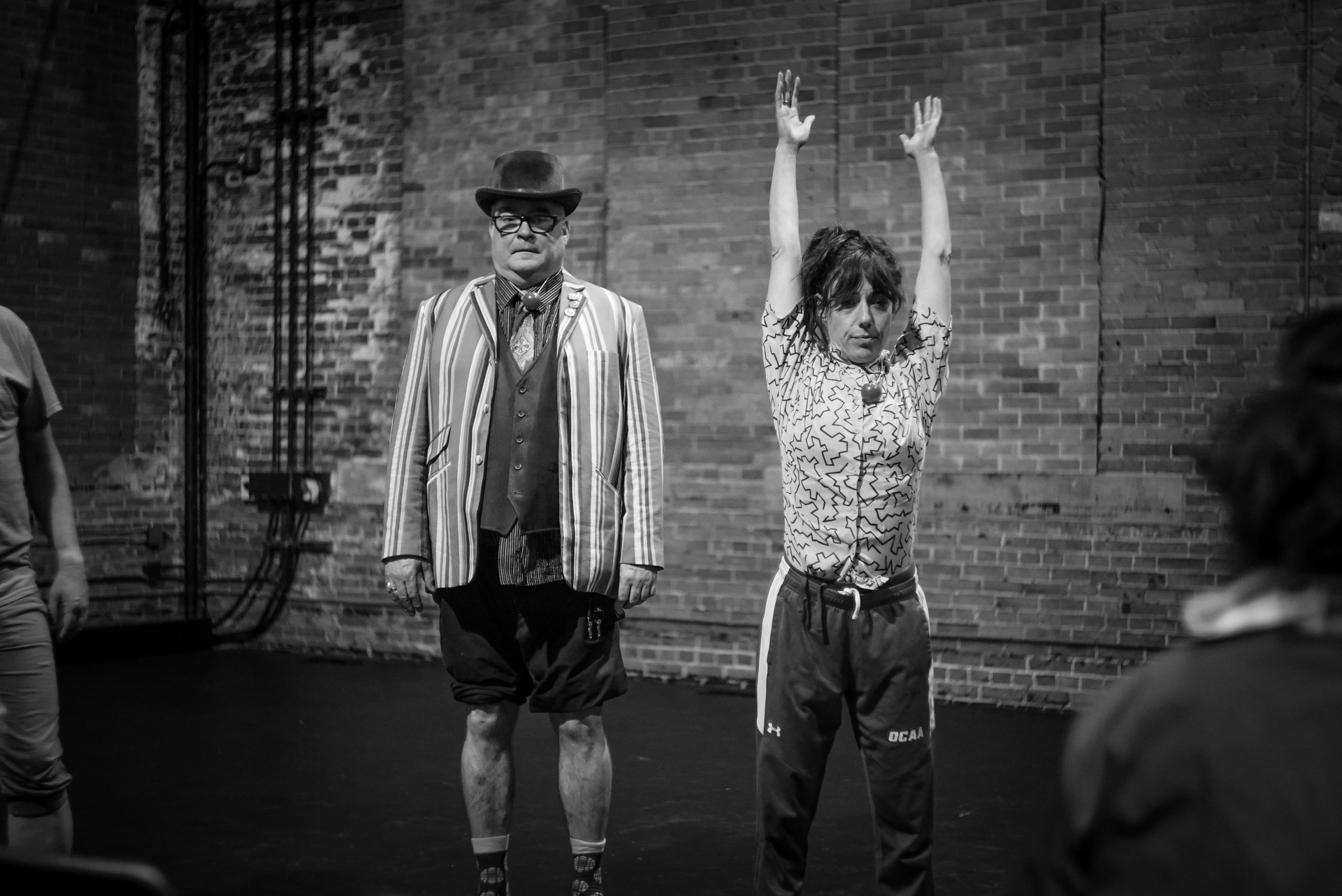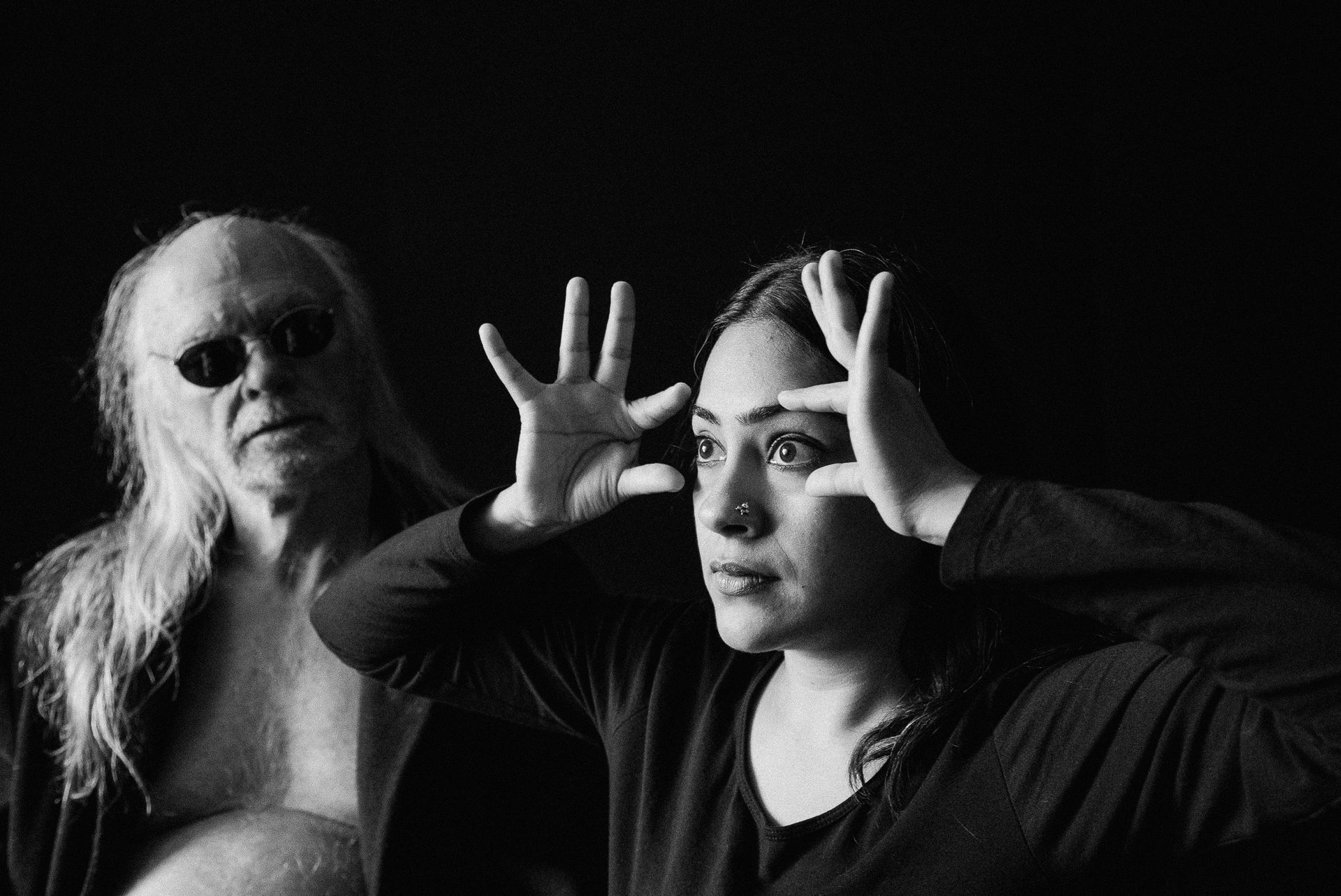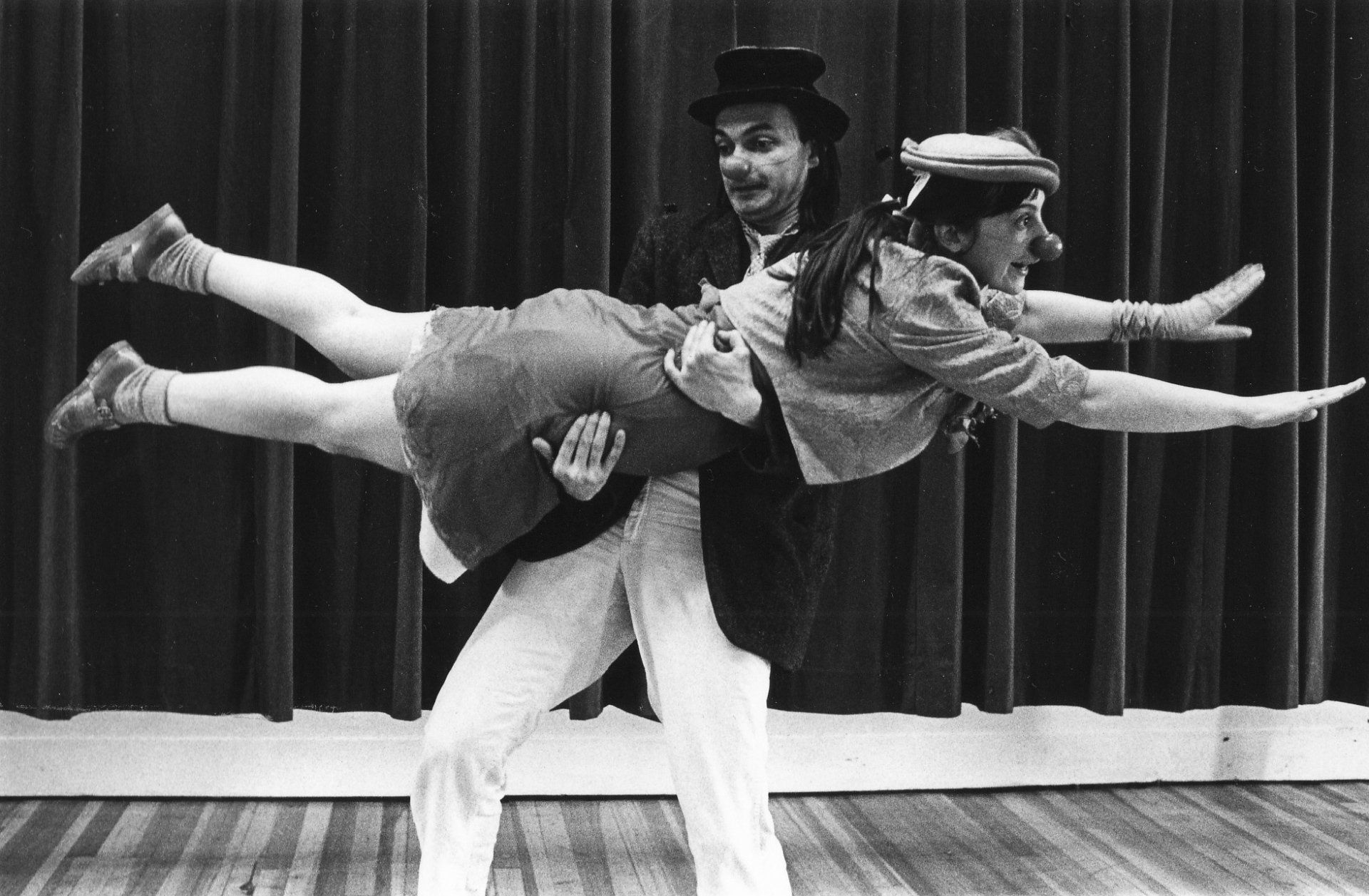Guo Hongbo, Wang Yangmeizi and Zhao Sihan on creating Lu Xun Blossoms
1 How did you end up working on Lu Xun Blossoms?
Guo Hongbo: I had seen Theatre Smith Gilmour’s production “Chekhov’s Longs” in 2006.It struck me immediately as the type of drama that interests me. When they suggested adapting stories about Lu Xun with our theatre, I knew I had to be involved.
Wang Yangmeizi: I love this style of performance. It includes image, language and body language. I am very interested in work where performers play a multiplicity of roles. I had limited exposure to theses techniques during my training as a performer.This made me want to be involved in the production to improve in this way.
Zhao Sihan: I hadn’t seen any of Theatre Smith-Gilmour’s work previously, but my best friend Zhen Ping attended the Chinese premiere of Lu Xun Blossoms in 2007. She recommended me to Michele Smith and Dean Gilmour, as well as the theatre and it worked out great.
2 How did working with a translator impact the rehearsal process?
Guo Hongbo: I don’t think the impact of using a translator was very important. It was reduced because we found a number common points of communication that were cross-cultural. We could discuss with each other what inspired us about the main themes of the texts, and explain it. No matter whether the director and actors are from Canada or China, we always start from the human nature. In this way it is easy for us to understand each other, and it is the best way to communicate with director, translator and script.
Wang Yangmeizi: Maybe there was less impact because of the type of drama we were creating. working creatively with our bodies to tell a story. From the beginning, we didn’t have a script, only the stories written by Lu Xun. We talked about the stories one by one, and one by one until we all had a clear understanding of their meaning. After that, we attempted to express it with our body language. We try to use our imagination separate from a translation of words.
Zhao Sihan: I can speak English, so it wasn’t a problem for me.
3 What surprised you most about working with a Canadian theatre company?
Guo Hongbo: Even though my English is not very good and Mimi and Dean don’t know Chinese, we usually seem to share the same understanding. There are no borders in art. For example, the beginning of our adaptation of the story ‘New Year Sacrifice’, the shadow is a wonderfully creative idea that transcends language to tell a story.
Wang Yangmeizi: I was surprised by the physical style of performance. We have only a little training in this form. There is no props on the stage, actors are the props. Actors don’t need to think a lot, they only need to use their expression and body language to tell audiences a story. I think it shares something with cartoon, full of artistic exaggeration. This allows audiences to engage with a sense of humour, not just follow a story.
Zhao Sihan: We try to take advantage of working with our Canadian collaborators throughout the rehearsal process. The director encourages all of our ideas. They don’t say no, but just say ‘Give it a try’. All the people in the play are earnest, and respect each other. Dean and Mimi have many wonderful original ideas.
4 What do you think still makes the works of Lu Xun relevant today?
Guo Hongbo: Just like Chekhov, Lu Xun belongs to the people all over the world. Maybe many people think his writing is aimed at a particular historical period. But in my eyes, his writing tell me about “human nature”, the nobility , ugly, chickenshit, devilishness… All these elements are familiar to anyone, in any country, at any time.
Wang Yangmeizi: I read Lu Xun’s writing when I was a child as part of my schoolwork. But at the time, I found some of it boring. All the stories are full of pain. I don’t like this kind of story at the time. But this time, rereading these stories again, I’m experiencing them differently. Maybe it is full of pain, but there is a sweetness behind the pain. I am glad to work with Dean and Mimi, and have learned much from this process.
Zhao Sihan: This question is too broad to give a single answer to.
Translation by Xie Jingying







